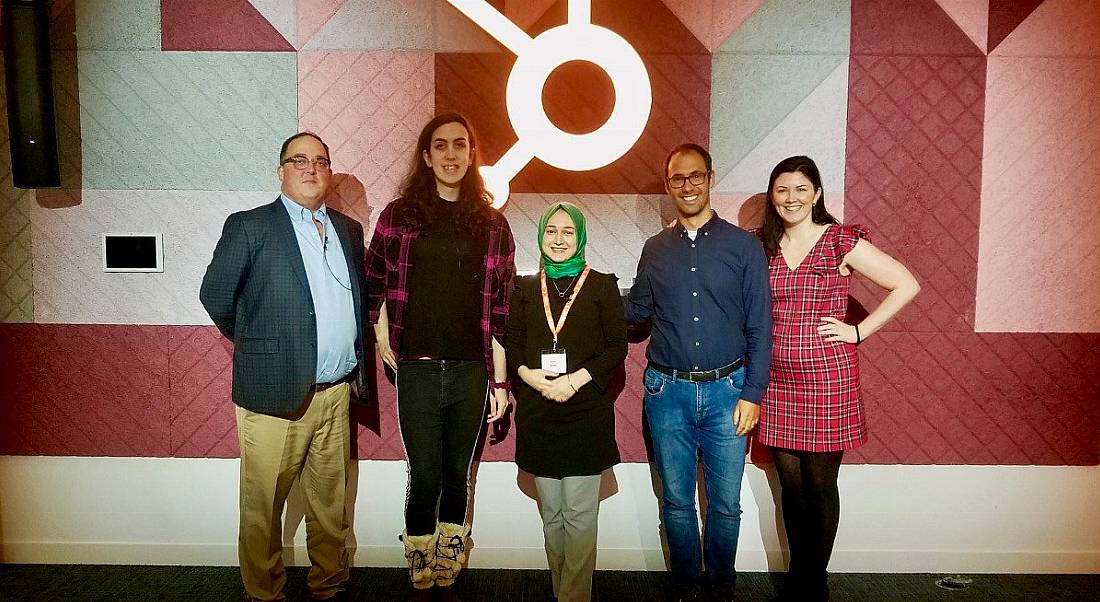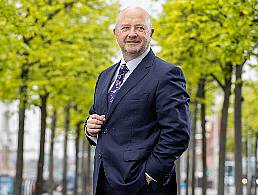HubSpot’s recent panel discussion showed that while the spotlight has been on diversity and inclusion for a while now, we still have a long way to go.
At the end of November, HubSpot’s chief people officer Katie Burke opened ‘Cracking Inclusion’, the company’s first official diversity and inclusion event in Dublin.
The aim of the event was to spark a conversation about how to foster cultures of inclusion at work with a diverse panel of speakers.
“We wanted to spark a night of discussion, networking with those in the community, whether an advocate, ally or [someone] looking to learn more around diversity in tech, and how we can all grow better when it comes to fostering an inclusive work environment,” said Burke.
The panel included Furkan Karayel, founder and CEO of Diversein.com; Karla O’Brien, transgender woman and former Inspirefest speaker; and Frank Auger, CIO at HubSpot. The panel was moderated by Ivan Penas Romero, EMEA services manager and advocate for diversity and inclusion at HubSpot.
You might be forgiven for hearing diversity and inclusion as mere buzzwords, especially when some companies seem like they’re all talk and no action. I asked the panellists about their views on the subject. I wanted to know if they believed much has changed since the world has focused on diversity and inclusion.
Karayel doesn’t think so, but she’s hopeful. “Five years ago, we weren’t having these conversations. We are now bringing attention through the media and have better awareness. But, if we compare 2006 to 2016 and the representation of groups of people, it hasn’t changed much,” she said. “However, we are on the right track and events like the one HubSpot hosted helps. It is a process.”
She added that when it comes to improving diversity and inclusion, all levels of a company need to take responsibility. “We have to ensure that HR isn’t solely responsible for making companies more diverse and inclusive.” She also said engagement is key, and companies need to build an environment where everyone can bring their voice.
‘We need to treat diversity and inclusion like a first-class problem’
– FRANK AUGER
Auger echoed Karayel’s sentiments, adding that we all need to make an effort to be more comfortable talking about diversity and inclusion the way every other important business issue is discussed. “Simply talking about it might not seem like an action, but there is power in transforming the topic from a sensitive taboo to a business issue we trust each other to talk about and solve together,” said Auger.
“We need to treat diversity and inclusion like a first-class problem and move the conversation beyond the like-minded people. There has been a lot of discussion around why diverse organisations that are inclusive perform better, but we need more action to really move the needle. We need to move this conversation from an optional HR priority to an urgent business initiative, and treat it accordingly.”
I was particularly interested in hearing about O’Brien’s own experience of diversity and inclusion. As well as speaking at Inspirefest, she has previously written about her experience as a transgender woman in tech. She spoke to me about how much has changed recently and the difference it has made.
“Previously, the resources weren’t available for me to change personal details. During college, the Gender Recognition Act came out, which is a great bill. But in college the view was, when it changes legally you can change it in internal systems. This doesn’t help people from other countries where it remains difficult or illegal to do so. Last year this all changed, which was massive.”
However, she said that issues still remain when it comes to technology, especially with longstanding processes that link back to old information – for example, the name you registered when you started college. “This has knock-on effects and a good example of this is when I received a letter from our LGBTQ society addressed to the wrong name. You would think it might be an easy process to auto-update names, but it’s just not.”
O’Brien added that it’s important to bring everyone into the conversation around diversity and inclusion, not just those considered to be directly affected. “It’s not a hampering to the majority, but rather adding to our collective social benefit so we can all push further than we thought we could.”
Auger further identified the importance of bringing in the majority as well as the minorities. “95pc of the tech workforce is white. I am a part of that 95pc statistic. I’m not treated differently because of the colour of my skin or where I come from. I can’t begin to imagine how that feels for employees, no matter how hard I try to put myself in someone else’s shoes.”
He said he was intimidated to relate to colleagues in a more vulnerable way, but this ended up being the reason why he agreed to be the executive sponsor of the People of Color at HubSpot employee resource group.
“It would mean that in some small way, I’d be part of supporting and advocating for our employees. Since joining, I’ve learned to lead in a new way, but have focused most of my efforts on empathy and listening to others.”




